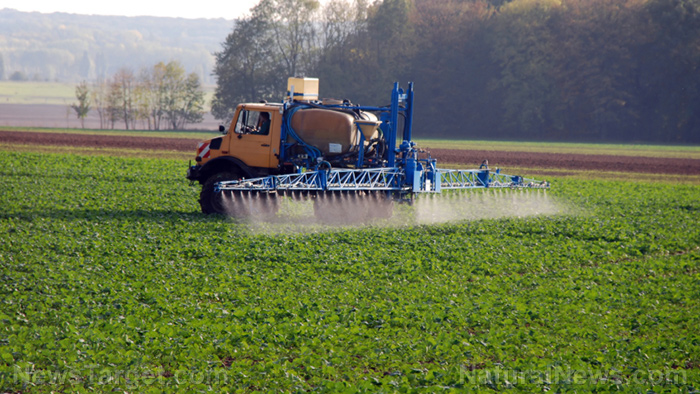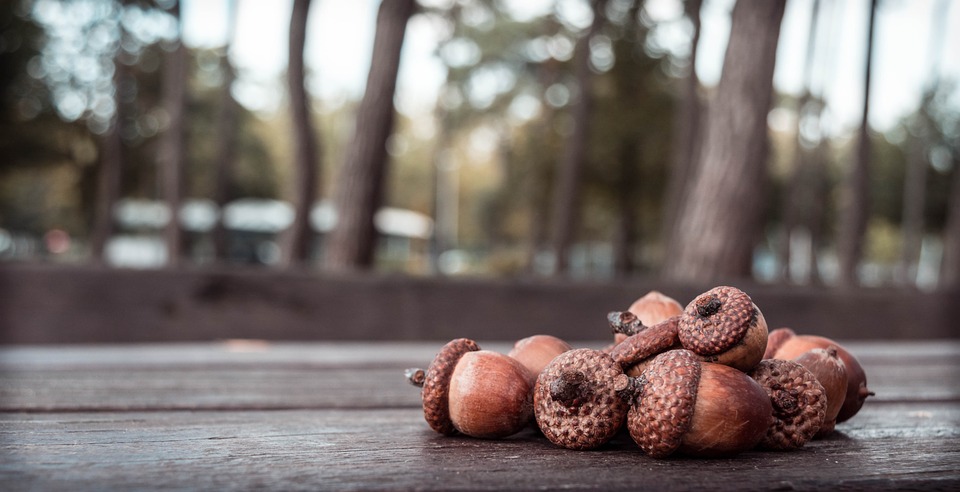Green for green: Organic fertilizers improve crop quality
11/13/2018 / By Edsel Cook

Adding chemical fertilizers might boost the yield of your crop in the short term. But using organic fertilizers is not just limited to a long-term investment in the quality of your soil. Romanian researchers reported that using biologic means of improving the soil leads to healthier crops that fetch better prices.
Most plants produce secondary metabolites as part of their normal biological processes. These useful compounds include essential oils and polyphenols, which are increasingly sought out by health-conscious consumers.
Aromatic and medicinal plants contain much higher amounts of these valuable metabolites. Plants like sweet basil (Ocimum basilicum) have significant economic value as crops, and farmers work hard to maximize the yield of their crops.
To increase the productivity of their croplands, farmers add fertilizers. The majority use chemical means of improving the soil. While certainly effective, chemical fertilizers suffer from drawbacks, such as excess amounts ending as runoff that disrupts the environment.
An increasing number of farmers have taken up organic means of agriculture. They use fertilizers drawn from biological sources, which are touted to be less damaging to the environment while achieving similar improvements. (Related: Organic fertilizer alternatives: Composted chicken litter promotes sustainable agro-ecosystems with minimal nutrient leeching.)
Organic vs. chemical
A group of Romanian and Bulgarian researchers compared the results of organic fertilization and chemical fertilizers on the growth of two different varieties of sweet basil. They also compared different types of biological fertilizer.
They chose the chemical fertilizer Nitrogen-Phosphorus-Potassium (NPK) with a ratio of a 20-20-20 ratio. The dosage for each hectare was 661 lbs (300 kg).
On the organic side, they tested three different types: Biosolids, normal organic fertilizers, and arbuscular mycorrhizal fungi (AMF). They added either 20 or 40 tons of biosolids, 661 lbs of organic fertilizer, or 66 lbs of microorganisms to each hectare.
The sweet basil cultivars were Aromat de Buzau and Violet de Buzau. The growth of these plants, the types and amount of essential oil present, and the physiology was evaluated according to the fertilizer in the field. A control group of unfertilized cultivars was used as a baseline of comparison.
Results
The researchers found that using chemical fertilizer produced the highest fresh yields. The Aromat de Buzau cultivar enjoyed a 116 percent increase compared to the unfertilized ones, while the Violet de Buzau went up by 68 percent.
Organic fertilizers, on the other hand, increased the amount of essential oils in the plants. Biosolid-fertilized Aromat de Buzau showed a 30 percent increase over unfertilized equivalents. The normal organic fertilizer and AMF similarly benefited the essential oil content of the Violet de Buzau cultivar by 21 percent.
Methyl chavicol and beta-linalool are the main components of the essential oil from Aromat de Buzau. The organic fertilizer increased their concentrations by 17 percent, while the AMF achieved a four percent boost.
The 20 ton per hectare (t/ha) dose of biosolid fertilizer raised the levels of tau-cadinol and gamma-cadinene present in Aromat de Buzau. Meanwhile, the 40 t/ha dose improved eucalyptol and delta-guaiene.
Using AMF as the fertilizer for Violet de Buzau raised the levels of beta-linalool, limonene, and (+)-camphor. However, it also lowered methyl chavicol.
The organic fertilizer option improved the amount of limonene, (+)-camphor, terpinene-4-ol, and beta-caryophyllene. It also negatively affected methyl chavicol.
Methyl chavicol achieved the highest levels in plants that received chemical fertilizers. The biosolid fertilizers, on the other hand, resulted in the best amounts of eucalyptol, (+)-camphor, terpinene-4-ol, beta-caryophyllene, germacrene D, and theta-cadinol.
The researchers concluded that the type of fertilizer affected both the growth of sweet basil and the number and levels of secondary metabolites in its essential oil. So while chemical fertilizers produce more crops, the quality of the essential oil from organically treated aromatic plants is much better.
You can get more articles about the subtle ways organic fertilizers can benefit your crops at GreenLivingNews.com.
Sources include:
Tagged Under: arbuscular mycorrhizal fungi, biofertilizer, chemical fertilizers, fertilizer, natural fertilizers, Nitrogen, nitrogen fertilizers, organic fertilizers, sweet basil



















